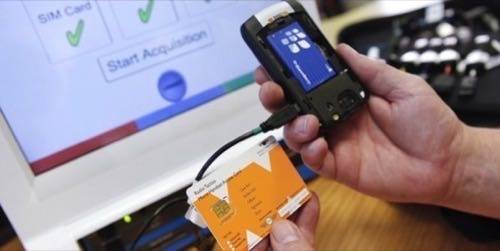
London’s Metropolitan Police recently started using machines that allow law enforcement to tap into any mobile device and download call registers, photographs, videos, SMS, email and even social networking data in under 20 minutes. Even more shocking, the information they collect will remain in the police’s possession long after the suspect is released, even if no charges are filed.
A machine of this sort sounds like something that would have been found in the dank depths of some palace in Tripoli after the downfall of Gaddafi, not in a British police station.
The Explosive Growth of Our Personal Data
The amount of data many of us are carrying around in our pockets every day is incredible – and growing. Even the most basic feature phones contain information about who we know, who we call and what we’re texting to each other. For smartphone owners, the trove of data is exponentially more massive.
“The problem is that allowing the police to peruse all this data based on nothing more than their belief whether a phone was used for criminal activity provides no safeguards or limitations,” says Hanni Fakhoury, an attorney at the Electronic Frontier Foundation. “It’s overkill for the police to search an entire phone on nothing more than a suspicion that the suspect used a phone to find out where an accomplice was waiting for him.”

The notion that people have a right to not have their belongings searched without a very good reason is considered so critical in democratic societies that the U.S. legal system won’t even accept evidence if it was obtained in violation of this principle. The exclusionary rule, as it’s called, has resulted in otherwise legitimate murder convictions being thrown out. That’s how important this idea is.
Legitimate Goals, Troubling Implications

Surely, one might argue, this technology will only be used in legitimate criminal inquiries, where it undoubtedly may yield important information that can help solve cases. That’s how both the product and the policy are being marketed to the public. And while there’s some merit to that argument, it does little to assuage the concerns raised by the practice.
The contents of a murder suspect’s smartphone may very well reveal details that could help secure a much-deserved conviction, but this isn’t just for alleged killers. It’s for everyone. That’s troubling enough for everyday arrestees who happen to be innocent. It’s even more disturbing for political activists.
What isn’t clear is when and how this tactic would be used. What if somebody is arrested for, let’s say, blocking traffic? That’s one of the charges that was brought against Occupy Wall Street protestors who marched across the Brooklyn Bridge last October. The government later subpoenaed Twitter for data about some of those protestors, a request that ultimately turned out to be fruitless.
Putting aside the issue of whether this would withstand constitutional scrutiny in the U.S., imagine if the New York Police Department had deployed machines like the kind that will soon be used in London. Suddenly, we’d have a situation in which the government has access to a mountain of personal data about political activists and dissidents, the vast majority of which would have no relevance to whatever charges may be brought against them.
A similar scenario could unfold in London soon as well. This summer, the city will host the 2012 Summer Olympics, an event which has traditionally invited political demonstrations by a variety of groups.
“With the Olympics coming to London, it wouldn’t surprise us to see the police use this broad authority to detain protesters for the sole purpose of examining a phone and learning more about other political protests and activities,” says Fakhoury, “and ultimately chilling free speech.”

















